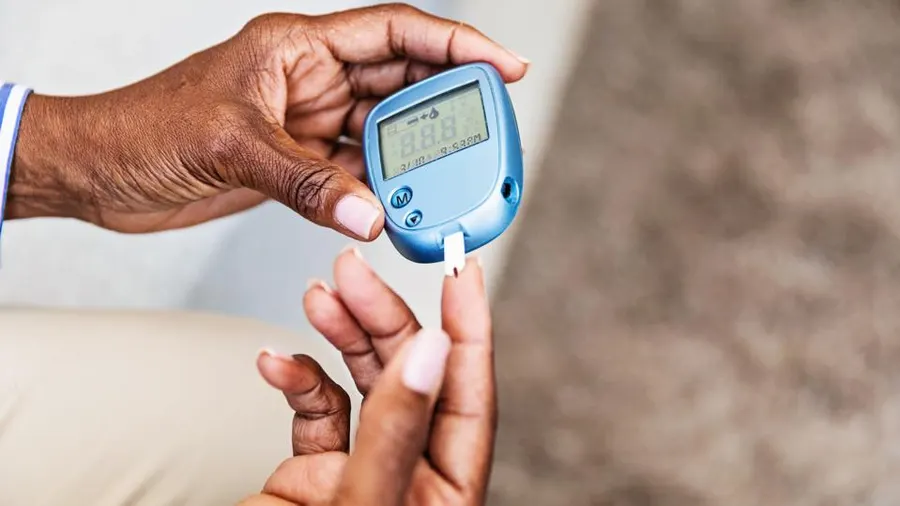Diabetes is a chronic condition that affects millions of people worldwide. It’s a complex disease that requires constant attention to various factors, one of the most crucial being blood sugar levels. Understanding blood sugar levels and how they impact diabetes management is essential for individuals living with diabetes to maintain good health and quality of life. In this blog, we’ll delve into the key insights about blood sugar management that can empower those with diabetes to make informed decisions and lead healthier lives.
The Basics of Blood Sugar
Blood sugar, also known as blood glucose, is a type of sugar that serves as the primary source of energy for our bodies. It comes from the carbohydrates we consume in our diet and is transported through the bloodstream to our cells, where it’s used for energy production. However, for people with diabetes, the body’s ability to regulate blood sugar is impaired, leading to high or low blood sugar levels.
Types of Diabetes
There are two main types of diabetes: type 1 and type 2.
- Type 1 Diabetes: This is an autoimmune condition where the immune system mistakenly attacks and destroys the insulin-producing cells in the pancreas. Individuals with type 1 diabetes require insulin injections or an insulin pump to manage their blood sugar levels.
- Type 2 Diabetes: This form of diabetes is characterized by insulin resistance, where the body’s cells don’t respond effectively to insulin. Over time, the pancreas may not produce enough insulin to meet the body’s needs. Lifestyle factors, genetics, and obesity can contribute to type 2 diabetes.
The Importance of Blood Sugar Management
Maintaining healthy blood sugar levels is crucial for people with diabetes to prevent complications and promote overall well-being. Uncontrolled high blood sugar levels can lead to serious health issues, including heart disease, kidney problems, nerve damage, and vision impairment. On the other hand, low blood sugar levels (hypoglycemia) can cause dizziness, confusion, and even unconsciousness if not addressed promptly.
Key Insights for Diabetes Management
- Monitoring Blood Sugar: Regular blood sugar monitoring is essential to understand how different foods, physical activity, stress, and medications impact your levels. This information helps you make informed decisions about your diet and lifestyle.
- Balanced Diet: Adopting a balanced diet that includes whole grains, lean proteins, healthy fats, and plenty of fruits and vegetables can help stabilize blood sugar levels. Avoiding sugary and processed foods is also important.
- Medication and Insulin Management: If prescribed medication or insulin, it’s crucial to follow your healthcare provider’s instructions carefully. Medications can help regulate blood sugar, but their effectiveness is closely tied to your diet and physical activity.
- Regular Exercise: Physical activity plays a vital role in managing blood sugar levels. Exercise helps your body use glucose for energy and can improve insulin sensitivity. Consult your doctor before starting a new exercise routine.
- Stress Management: Chronic stress can affect blood sugar levels. Finding healthy ways to manage stress, such as through relaxation techniques, meditation, or hobbies, can positively impact diabetes management.
- Timing and Portion Control: Spreading out your meals and controlling portion sizes can prevent blood sugar spikes. Eating smaller, more frequent meals can help maintain steadier glucose levels.
- Hydration: Staying hydrated supports kidney function and can help prevent blood sugar imbalances. Choose water or other sugar-free beverages over sugary drinks.
- Regular Medical Check-ups: Regular visits to your healthcare provider are essential for monitoring your diabetes and making any necessary adjustments to your treatment plan.
Understanding blood sugar levels and their impact on diabetes management is crucial for maintaining good health and preventing complications. With proper monitoring, a balanced diet, regular exercise, and effective stress management, individuals with diabetes can take control of their condition and lead fulfilling lives. Always remember that each person’s diabetes journey is unique, so working closely with your healthcare team is key to developing a personalized diabetes management plan that suits your needs and goals.
